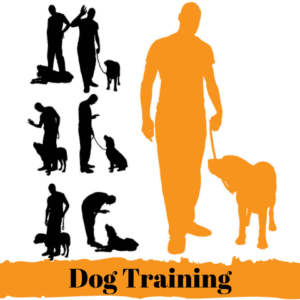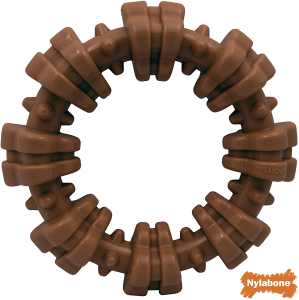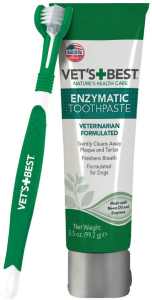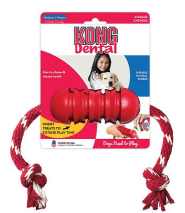So let’s look at how to prevent dental disease in dogs, and what you can do at home without going to the vet. Because like humans, the health of a dog’s teeth is related to its overall health, which is why good dental hygiene for dogs is so important.
As a dog owner, it is important to know how to keep your dog’s teeth clean and healthy.
It is also important to know what symptoms indicate that your dog may be experiencing a problem with its teeth or have gum disease. And knowing how to prevent and treat the most common dog dental health issues without seeing the vet, and knowing when you do need to take your dog to the vet.
Dogs use their teeth and mouths for more than just eating; they use their mouths when playing with other dogs and exploring objects by mouthing, chewing, and tasting.
All of these activities expose your dog to potential risks of infection in the mouth or tooth damage.
Your dog’s teeth are also at risk if they are not cleaned regularly, whether by you brushing the dog’s teeth or by the dog chewing on dental products.
Because, like human teeth, if they are not cleaned regularly, plaque builds up, turning into tartar, which can lead to inflammation and tenderness – which can make eating food very painful.
Poor dental hygiene can also cause diseases such as gingivitis (a mild gum disease) – which means a visit to the vet for treatment and pain and discomfort for your dog.
Gum disease (also known as periodontal disease or periodontitis) is caused by an infection that destroys the bone surrounding and supporting your dog’s teeth.
Periodontal illness can cause serious health problems for your dog, so it is essential to maintain good oral hygiene. If left untreated, teeth can decay, leading to painful abscesses and systemic infections throughout your dog’s body.
Periodontal disease can cause permanent jaw damage and increase the risk of cardiovascular disease.
How Can I improve my Dog’s Dental Health?
Tooth decay is rare in canines. Although the shape of human teeth in horizontal crowns predisposes humans to retain food deposits between our teeth, cone-shaped dog teeth mean that it is more difficult to retain food that could cause cavities.
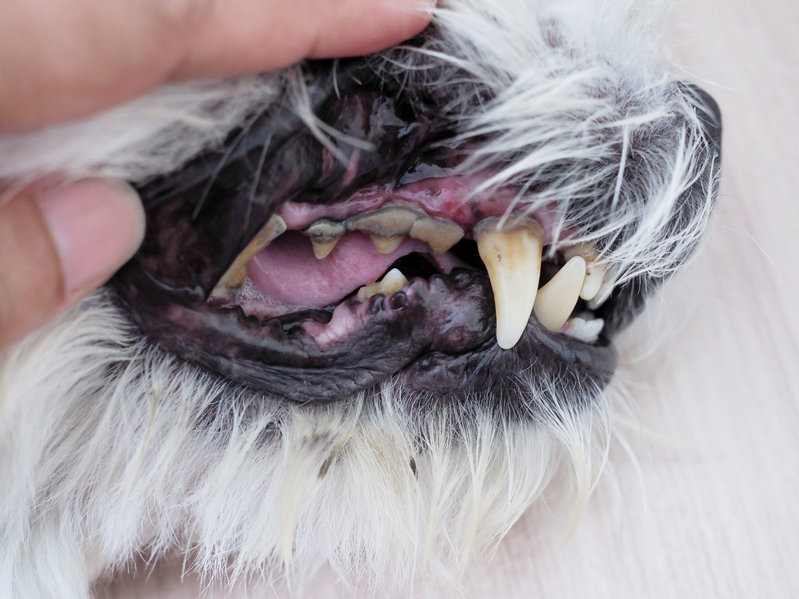
A veterinarian inspecting for dental decay
And although dental cavities are rare, with only around 5% of dogs affected by tooth decay, it is something that dogs owners should be aware of and look for.
The development of cavities can be caused by one or more of the following:
- Poor oral hygiene
- Poor diet, high in carbohydrates, which can be from poor dog food or overfeeding them high carb scraps from the table like bread
- Poor overall health
- Teeth formed abnormally close to each other
- Gaps between teeth and gums
- Low pH
- Defective mineral tooth enamel
Virbac CET Veggiedent FR3SH Tartar Control Chews for Dogs
Symptoms of Dental Disease in Dogs
It’s easy to overlook dental illness as a cause of any discomfort, particularly in older dogs, as we often assume that behavioral changes are caused by “just getting old.”
However, a sore mouth can cause significant changes in behavior.
- Gradual loss of interest in playing or chewing toys
- Food annoyance: sometimes favoring certain types of food, eating only on one side, or having trouble picking up food
- Rubbing or pawing at the mouth
- Salivate (dribble) more
- Feel pain when you try to examine the mouth
- Blood in the food or water bowl
Other symptoms of dental disease include foul-smelling breath, red or swollen gums, and yellow and brown or missing teeth.
Dental disease in dogs can be harrowing, especially if left untreated.
Bullibone Nylon Dog Chew Toy Nylon Bone – Improves Dental Hygiene
How Can Dental Diseases be Prevented?
So how can we keep our dog’s teeth clean?
Here are some tips!
Brushing your dog’s teeth daily with a special dog toothbrush and toothpaste is a good place to start.
WARNING: Do not use human toothpaste as it contains chemicals that can be toxic to dogs who swallow the paste.
Okay, so for some of you, brushing your dog’s teeth on a daily basis may not be so practical – although, if your dog was your two-year-old child, you would. But, I understand the difference.
The alternative would be to bush your dog’s teeth whenever you can, say every Sunday afternoon, for example, and giving your dog dental chews every day, plus a suitable diet to minimize the build-up of plaque.
Be careful with dental chews though, always read the label and choose dental chews that are the correct size and type for your dog. Because if the chew toy is too small, it could be a choking hazard.
One other consideration is that some dental chews are high in calories, which should be okay if you also reduce your dog’s normal food intake accordingly so that they don’t put on weight.
Vet’s Best Dog Toothbrush and Enzymatic Toothpaste Set
Keep your doggie and his dentist smiling with Vet’s Best Enzymatic Toothpaste and Toothbrush Dog Dental Care Kit.
This dental care kit for your dog includes a triple-headed toothbrush and enzymatic gel toothpaste.
The three bristle heads of the brush are designed to fit around each tooth, efficiently cleaning from every angle simultaneously.
The enzymatic toothpaste for dogs is crafted to fight tartar and plaque, whiten and brighten teeth, promote healthy gums and freshen breath.
It contains a veterinarian formulated blend of aloe, neem oil, grapefruit seed extract, baking soda, and enzymes. Check out other options and Prices Here.
Selecting a Toothbrush and Toothpaste
Each dog should have his/her own toothbrush. Dog toothbrushes are soft and angled to reach the back teeth properly.
There are numerous shapes and sizes of toothbrushes available to fit your dog’s mouth best. Your vet can help you select the right brush for your dog.
Many toothpaste flavors are available, and most dogs seem to prefer the seafood or poultry flavored types.
Picking the Right Toothpaste and Mouthwash for Your Dog
As I mentioned previously, Do NOT use regular human toothpaste for your dog. Most human toothpaste includes fluoride, which is highly poisonous to dogs.
You can find toothpaste formulated for dogs in most good pet stores or online.
Some pet stores also offer dog mouthwashes, which you can add to water bowls to help kill bacteria and reduce plaque.
When used correctly and diluted in your pet’s water, dog mouthwash is safe; just ensure your dog doesn’t get a hold of the whole bottle.
As with toothpaste, don’t use human mouthwashes on your dog.
Arm & Hammer for Pets Tartar Control Kit for Dogs (Top seller on Amazon)
Treating Dog Dental Disease
Your vet may prescribe antibiotics and a dental program to treat your dog’s dental disease. In addition, your vet may need to scale and polish the dog’s teeth, and in some cases, extract one or more teeth.
So the sooner you address your dog’s dental disease, the easier it will be to prevent further deterioration.
It is not uncommon for owners of older dogs to find that their dog has received a new lease of life after being treated for dental disease.
Depending on the severity of your dog’s dental disease, your veterinarian may want to place your dog under general anesthesia.
It allows them to remove accumulated plaque and tartar and perform surgery on badly affected teeth, gums, bones, and tissues.
The vet will probably also use an antibiotic gel on the gums to soothe the wound or prescribe an oral antibiotic to reduce the risk of infection.
How to Prevent Dental Disease in Dogs
By now, I hope that you can see the benefits of brushing your dog’s teeth regularly with toothpaste. And providing them with plenty of chewing opportunities (hard toys and rawhide chews) and always feed your dog a healthy diet.
Therefore, if you have not cleaned your dog’s teeth before and you think your dog has a dental disease, talk to your vet first. Because if your dog already has dental disease, brushing can be ineffective at best and, at worst, very painful.
Lastly, make sure you take your dog to the vet for regular health checkups.
When to See a Veterinarian
Take your dog to the vet if your dog has any of these symptoms:
- Bad breath
- Change in the dog’s eating or chewing habits
- Pawing at the face or mouth
- Depression
- Excessive drooling
- Misaligned or missing teeth
- Discolored, broken, missing, or crooked teeth
- Red, swollen, painful, or bleeding gums
- A yellowish-brown crust of tartar along the gum line
- Lumps or growths inside the mouth
In summary
Preventing dental disease in dogs is not that different from how we take care of our own teeth. Daily brushing or in the case of dogs dental chew toys, regular dental checkups, and a good diet. A mouthwash every now and again wouldn’t go as stray either.
- Prevention is better than any cure
- Know and look for the symptoms of teeth and dental illness, including broken and cracked teeth
- Brush your dog’s teeth regularly
- Keep a good supply of chewable dental products on hand
- Give your dog a balanced diet
Products Featured on This Page
GREENIES Original TEENIE Natural Dog Dental Care Chews
Veterinarian Recommended for Dental Care: These dental treats are made from high-quality ingredients combined into soft chews your dog will love
Virbac CET Veggiedent FR3SH Tartar Control Chews for Dogs
Cleans teeth: Just one chew daily reduces tartar and plaque, the oral causes of bad breath unique Z shape allows the chew to reach front to back and everywhere in between
Bullibone Nylon Dog Chew Toy Nylon Bone – Improves Dental Hygiene
IMPROVES DENTAL HYGIENE: Help improve your dog’s dental hygiene to keep them healthy and save money on your dog’s dental bills.
Vet’s Best Dog Toothbrush and Enzymatic Toothpaste Set
Vet’s Best Enzymatic Dental Gel Toothpaste is a veterinarian formulated soothing and effective mix of aloe, neem oil, grapefruit seed extract, baking soda, and enzymes
Arm & Hammer Dental Nubbies Tartar Control Peanut Butter Flavored Dental Dog Treats
These peanut butter flavored treats help maintain your dog’s dental hygiene as s/he bites and chews on the treats. The semi-soft treat surrounds your dog’s teeth right up to the gum line which helps to remove plaque while the chlorophyll freshens the breath.
KONG Dental with Rope Dog Toy
This KONG dental toy for dogs has groves that have been designed to clean teeth and gums as your dog chews.
Full disclosure – Affiliate Links: Some of the links on this page are affiliate links, which means that if you choose to make a purchase, I will earn a commission – which helps me keep providing you this information for free.
The small commission I earn comes at no additional cost to you. Please understand that I recommend them because they are helpful and useful, not because of the small commissions I make if you decide to buy something.
Please do not spend any money on these products unless you feel you need really them.
Recent Posts
Summer Safety Guide for Dog Owners: Keeping Your Canine Companion Cool and Comfortable
Summer brings warmth and sunshine, inviting humans and their canine companions to enjoy the outdoors. However, the rise in temperature also increases the risks of overheating and heat-related...
The Importance of Heat Safety for Dogs: Understanding Heatstroke and How to Prevent It
Heatstroke is a serious condition that can occur in dogs when their body temperature becomes dangerously high, typically as a result of prolonged exposure to high temperatures or excessive physical...
